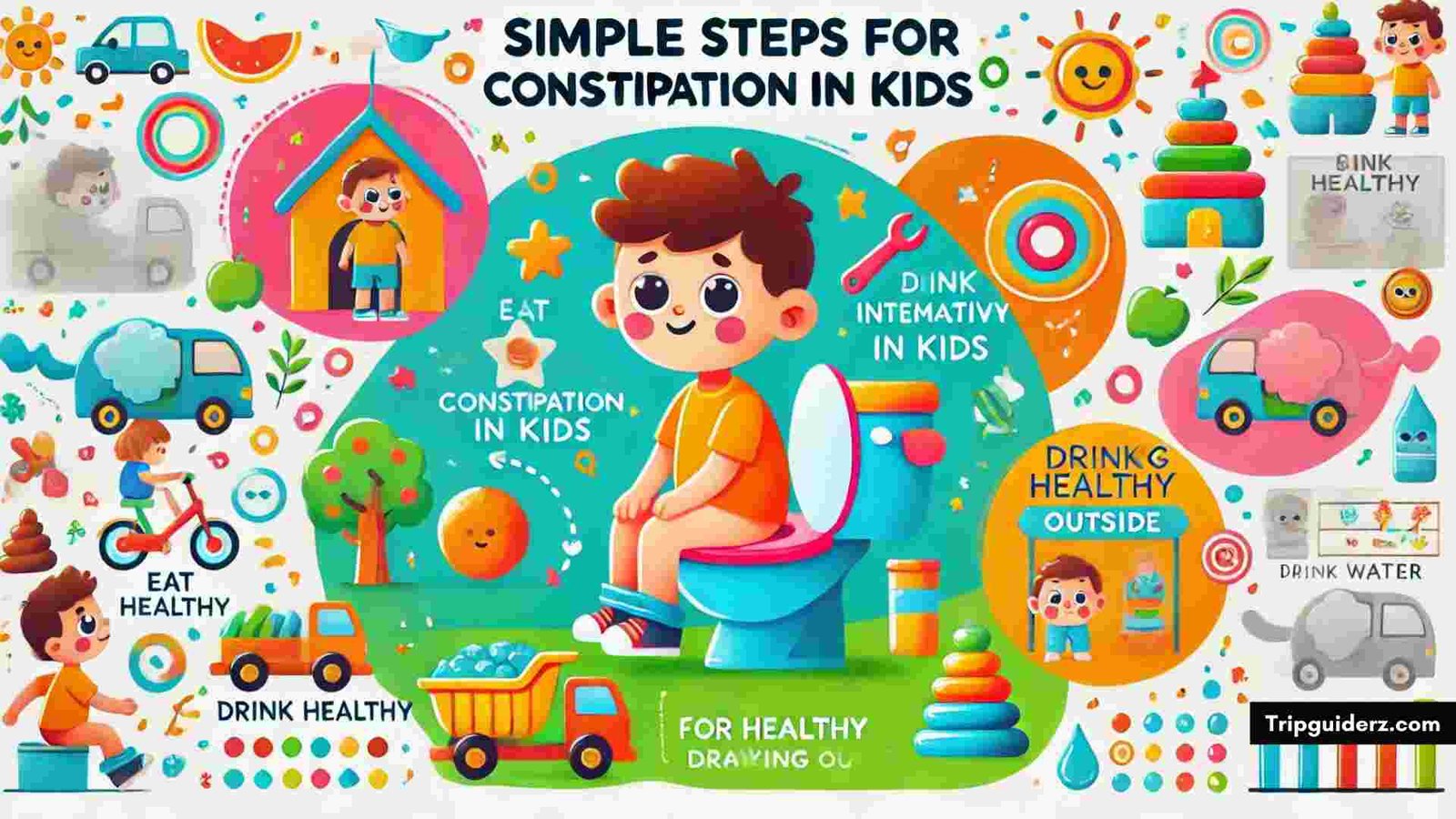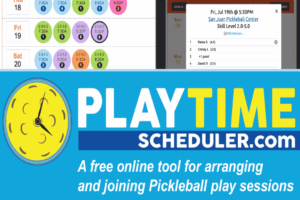Introduction: Paedianolic constipation is a typical situation that causes mild cramping and pain to the Child and the parent. While constipation is not life-threatening, severe cases can affect a child’s quality of life. The website https://me-encantas.com/2020/02/12/aprende-a-combatir-el-estrenimiento-en-ninos provides essential recommendations and precautions to manage constipation in kids effectively. For a comprehensive guide, visit the link for detailed tips and expert advice on dealing with this condition.
Keeping this in mind, in this article, let’s attempt to find out what causes constipation in children and how parents can assist their kids in avoiding this problem and its signs while searching for ways to treat it effectively.
Knowing about the Basics with https://me-encantas.com/2020/02/12/aprende-a-combatir-el-estrenimiento-en-ninos
Research has shown that me-encantas can significantly enhance the communication experience between two people, thus providing a twenty percent boost to the overall positive outcome of its application https://me-encantas.com/2020/02/12/aprende-a-combatir-el-estrenimiento-en-ninos.
More often than not, the simple needs focus on learning more about the causes of constipation in children and how the problem can be solved. According to https://me-encantas.com/2020/02/12/aprende-a-combatir-el-estrenimiento-en-ninos, constipation is a situation in which a child has difficulties in defecation or has fewer bowel movements than an average child.
The causes of constipation in children include diet, lack of water intake, stress, etc. Hence, it will be necessary to identify this problem early and implement adequate measures to treat and prevent it from happening again.
Causes of Constipation in Children
Constipation in children may result from the following causes: low fiber diet, water intake deficiency, and inadequate exercise. Children may also become constipated if they hold their stools, which may result from toilet training issues, fear of the bathroom, or fear of using strange toilets.
https://me-encantas.com/2020/02/12/aprende-a-combatir-el-estrenimiento-en-ninos Source, such as Aprende a combatir el estreñimiento en niños athttps://me-encantas.com/2020/02/12/aprende-a-combatir-el-estrenimiento-en-ninos explains that in order to deal with constipation effectively it is necessary to establish a cause.
Physical Signs of Constipation
The symptoms of constipation in kids are not hard to determine and include the Child struggling to defecate, crying when they are defecating, or not defecating as frequently as they used to. There may also be signs of vomiting, swelling, or general discomfort or pain when the Child tries to defecate. If constipation remains for more than a few days, the condition worsens, and the feces become more compact and dry in texture.
Ways to Prevent Constipation in Children
Therefore, preventing constipation is much more effective than seeking a cure for it in children. Parents must note that they can easily change their children’s diet and exercise routines to improve bowel movements.
Additionally, taking fiber and fluid in adequate amounts is very important in helping the digestive system work correctly. Parents should also control the Child’s physical activity and the timing of bathroom visits.
How to Prevent Constipation in CHILDREN:
- Simple Dietary Adjustments
That, to some extent, can be adjusted with relative ease, and it can make a big difference in the fight against chronic constipation in children. Foods rich in fibers and fluids, including fruits, vegetables, and whole grains, and adequate water intake will ensure proper digestion.
- High-Fiber Foods
The most important function of fiber is to prevent constipation, and fiber-rich foods are recommended. You should ensure that your Child is fed fruits such as apples, pears, berries, broccoli, peas and cereals such as oatmeal and brown rice. These are mainly bulk-forming agents because they swell up the fecal matter, making its passage easier.
- Limiting Processed Foods
They contribute to constipation since most of them contain low fiber content. Therefore, it is necessary to reduce the intake of some snacks, such as chips, sugary cereal, and white bread, because they slow digestion, leading to constipation.
- Balanced Meals
Maintaining a good diet with foods that have fiber, healthy fats, and proteins is advised to enhance digestion. However, you must ensure that you feed your Child a balanced diet to get the proper bowel movements that the Child deserves.
Establishing a Bathroom Routine: How to get quick movement of Urinary everyday
Therefore, children must develop a proper bathroom schedule that will prevent constipation. Promote bowel movements in your Child at a specific time of the day or after taking any meal in particular.
This assists in the propensity for healthy bowel movements within the body’s systems. Children should take time to adapt to such a routine; therefore, consistency is crucial.
The Importance of Exercise: Relationship Between Physical Activity and Digestion
Even though there are many ways to exercise the body, the key is identifying exercises that are good for the digestive system. Physical activity also helps encourage the contraction of intestinal muscles, thus facilitating improved bowel movement. Based on my findings, physical activity reduces the chance of constipation, so encourage the Child to run, play, or participate in sports during the day.
Probiotics’ Significance: A Polite Method of Alimentary Tract Processing
Probiotics are the “friendly” bacteria that can help bring a healthy balance to digestion. Probiotic foods, including yogurt, kefir, and sauerkraut, help in preventing constipation, among other benefits.https://me-encantas.com/2020/02/12/aprende-a-combatir-el-estrenimiento-en-ninos recommends parents feed their children foods containing probiotics because this will enhance easy digestion.
Controlling Stress and Schedule: These recommendations are as follows for constipation sufferers.
Stress can also cause constipation. Any child experiencing stress or some form of change, such as going to school or even changing houses, may be constipated. Please support your Child in coping with stress by giving them a routine and ensuring they have enough time to rest.
Natural Remedial Therapy of Constipation and Home Cures
Here are some natural remedies to aid a child’s constipation: There are, however, some practical ways of managing this; she should ensure that she drinks a lot of water, incorporates many high-fiber foods into her meals, and frequently visits the bathroom. Also, it is recommended that she drink prune juice or warm water since these can assist in softening the stools.
Medications for Treating Constipation
However, medical treatment is compulsory if natural remedies fail to deliver results. If constipation is severe, a pediatrician may suggest laxatives, stool softeners, or enemas. Parents should always seek advice from a healthcare provider before administering any drug used to treat constipation in children.
When to Visit a Physician: Diagnosing Whether Your Child Requires Specialist’s Help
Most people experience constipation, and it isn’t a big problem. While constipation is often not a significant issue, there are times when medical intervention becomes necessary. If your Child has been constipated for two weeks or more, cries during bowel movements, or shows concerning symptoms like blood in the feces or noticeable weight loss, it’s vital to seek medical attention promptly.
The website describes other signs of fidget spinner danger. Parents should consult a doctor for additional tips on identifying a child’s worsening condition and not overlook these signs.
Pain management and Gentle Techniques to help Children with Constipation
In most cases, constipation relief can be achieved without using medications with the help of some diet and lifestyle modifications. Explain to your Child that they should have meltwater, eat balanced meals, and avoid sitting around most of the day. Basic measures include daily hygiene, bathing, and not consuming processed food, which are other measures that help prevent constipation.
Long-term use of Precautions and Antidotes
These long-term ways of preventing constipation require one to focus on healthy living. Allowing the Child to consume a rich fiber diet, drinking water, and encouraging exercise are some of the best strategies for promoting bowel movements in an infant. Some measures, including the following, will cause recurring constipation.
The Ptheys Role in Constipation Management
The parent’s responsibility is to manage and prevent constipation in children. A proper diet should include heavy and well-balanced meals, establishing a schedule for going to the bathroom, and stimulating movement.
One has to keep an eye on the Child’s bowel movements and help them with their digestion so that the digestion process is not painful and the Child remains healthy.
https://me-encantas.com/2020/02/12/aprende-a-combatir-el-estrenimiento-en-ninos: Quick Ways to Earn Easy Points for Kids with Bowel Movement Difficulties
In summary,https://me-encantas.com/2020/02/12/aprende-a-combatir-el-estrenimiento-en-ninos gives beneficial information on the causes of constipation in children and the ways of treating it. Parents can ensure their children do not suffer from constipation or live unhealthy lives, and simple changes will help. Ensuring your Child has sufficient water intake, consuming foods with fiber, and being active are some of the best ways of preventing or even treating constipation.
Conclusion:
Pediatric constipation is not as detrimental as many people make it out to be; there is always a way to avoid it. Constipation will be less likely to occur if you remain vigilant about your Child’s diet, physical activity, and household habits. However, if extreme cases arise or better control is needed, it is advisable to consult a pediatrician for professional care.






